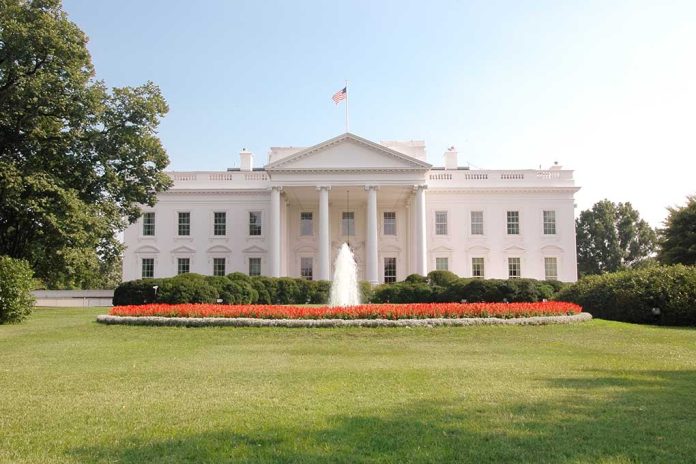
Tech titans Elon Musk and Jack Dorsey have sparked a national controversy by calling for the complete abolition of intellectual property laws, setting off alarm bells across creative industries and drawing both fierce criticism and enthusiastic support.
Key Takeaways
- Twitter co-founder Jack Dorsey proposed to “delete all IP law,” with Elon Musk publicly agreeing, claiming current laws stifle innovation
- Critics argue abolishing IP protections would harm individual creators and small businesses while potentially benefiting large tech companies
- The controversial proposal comes amid ongoing lawsuits against AI companies for alleged copyright violations in training their models
- The debate highlights tensions between tech innovators and traditional legal systems designed to protect intellectual property
- Experts suggest reform rather than elimination would better balance innovation with creator protections
Tech Leaders Challenge Intellectual Property System
The intellectual property debate erupted when Jack Dorsey, co-founder of Twitter, made the bold declaration to “delete all IP law.” Elon Musk, who has President Trump’s ear on technology matters, quickly endorsed the sentiment with a simple “I agree.” Their stance represents a dramatic challenge to fundamental legal protections that have governed creative works and innovations for generations. Both tech leaders argue that current intellectual property laws create artificial barriers to innovation and creativity while primarily benefiting established gatekeepers instead of creators themselves.
Dorsey elaborated on his position, stating that “creativity is what currently separates us, and the current system is limiting that, and putting the payments disbursement into the hands of gatekeepers who aren’t paying out fairly.” This perspective aligns with longstanding criticism that traditional IP systems have failed to adapt to the digital era where information flows freely and creation often builds upon existing works. Musk has previously stated that “patents are for the weak,” despite strategically using them throughout his business empire before releasing Tesla’s patents in 2014.
— Crypto Briefing (@Crypto_Briefing) April 12, 2025
Critics Warn of Unintended Consequences
The proposal has met significant resistance from legal experts and creators who argue that abolishing IP protections would have devastating consequences. Critics point out that without copyright, patent, trademark, and related protections, individual creators and small businesses would lose crucial leverage against larger, more powerful entities. This could potentially lead to widespread exploitation of creative works without compensation, affecting industries from music and film to pharmaceuticals and technology development.
Particularly concerning to many observers is the timing of this pronouncement, which comes amid high-profile lawsuits against artificial intelligence companies for allegedly violating copyrights when training their models on creative works without permission or compensation. Some critics suggest the call to abolish IP laws could benefit tech companies developing AI systems that rely on vast amounts of existing content for training purposes, potentially allowing them to use creators’ work without any legal obligation to compensate them.
Balancing Innovation and Protection
Experts in intellectual property law emphasize that while the current system has flaws, complete abolition would likely create more problems than it solves. They suggest that reform, rather than elimination, offers a more balanced approach that could address legitimate concerns about innovation barriers while still ensuring creators receive fair compensation for their work. Such reforms might include shortening protection periods, expanding fair use provisions, or creating new compensation models that better reflect how content is created and consumed in the digital age.
The controversy highlights a fundamental tension in American innovation policy between protecting creators’ rights and ensuring knowledge can flow freely enough to foster new developments. With Musk’s close relationship to the Trump administration, observers are watching carefully to see whether this debate might influence future policy discussions. President Trump has previously focused on intellectual property protection in international trade negotiations, particularly regarding Chinese practices, making the administration’s response to this debate particularly significant for industries across the spectrum.
Global Implications
The implications of changing IP law would extend far beyond America’s borders. International trade agreements heavily feature intellectual property protections, and any substantial changes to U.S. policy would potentially disrupt global commerce. Industries that rely on patents, from pharmaceuticals to electronics, warn that diminished protections could reduce investment in research and development. Meanwhile, creative sectors argue that without copyright protections, sustainable business models for content creation would collapse, ultimately reducing the diversity and quality of creative works available to the public.
With both powerful advocates and staunch opponents, the debate over intellectual property’s future appears likely to intensify. Regardless of the outcome, the conversation has highlighted critical questions about how society can best balance innovation with fair compensation in an increasingly digital economy where traditional boundaries between creation, collaboration, and consumption continue to blur.
Sources:
- Jack Dorsey, Elon Musk spark debate over IP law
- Jack Dorsey and Elon Musk would like to ‘delete all IP law’ | TechCrunch
- Jack Dorsey Says We Should ‘Delete All IP Law,’ Elon Musk Agrees




